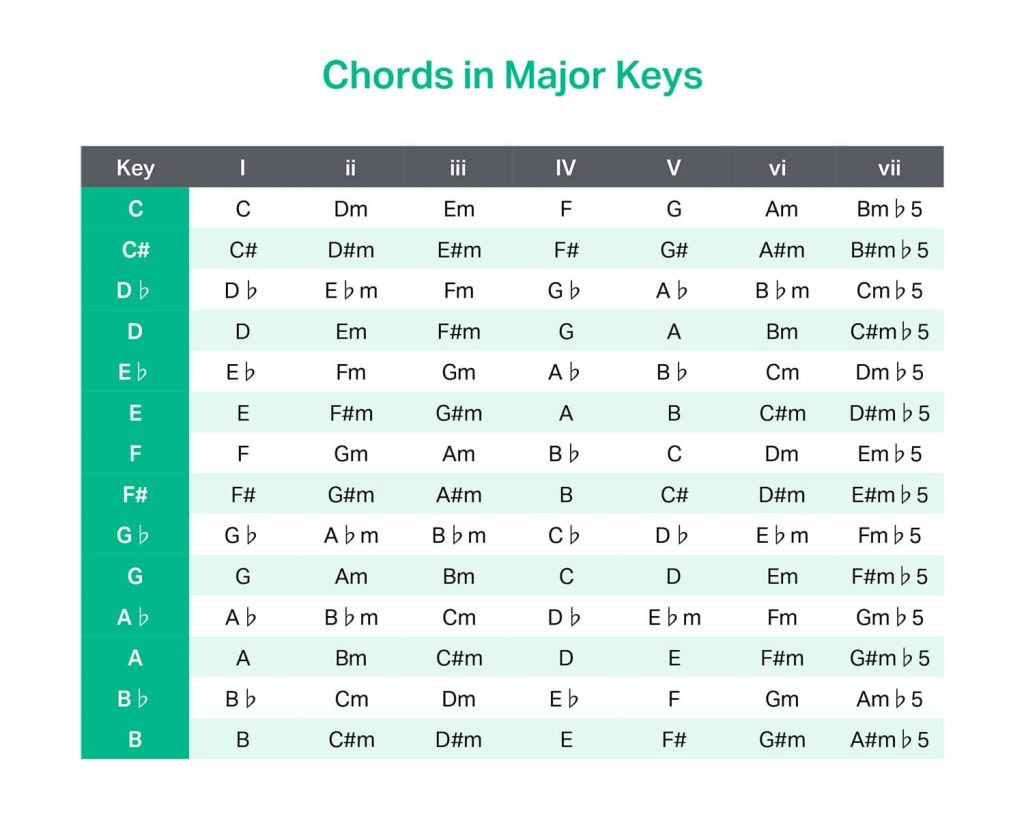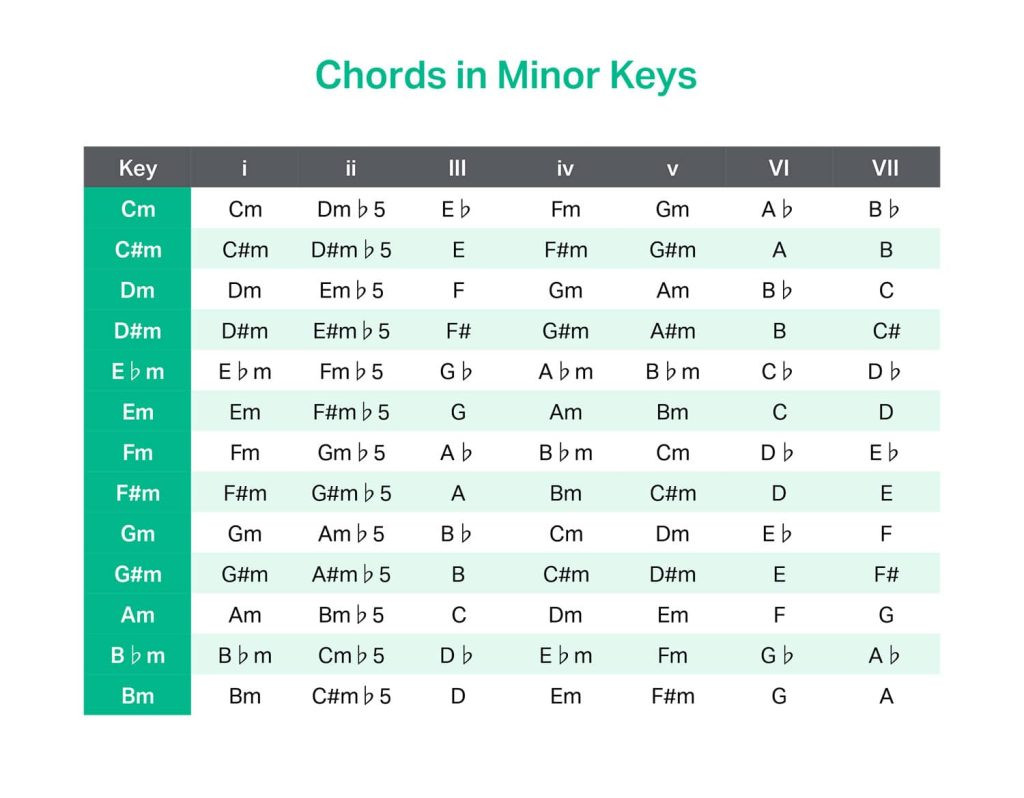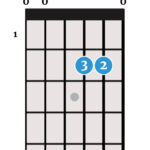You might have come across musical terms that initially sound perplexing. For instance, do you know what “keys” are in music and why grasping them is beneficial for guitarists? Let’s delve into the concept of keys to enhance your understanding of music theory as it applies to the guitar.
Musical Keys and Guitar Keys: Clarifying the Terminology
The good news is, when musicians talk about “musical keys” and “guitar keys,” they’re essentially referring to the same concept. The term “guitar keys” often emerges in informal discussions among guitarists, typically pointing to groups of chords that harmonize well together on the guitar. In music theory, a “key” is formally defined as a set of pitches or scales that serve as the bedrock for any musical piece within Western musical traditions. Practically speaking, understanding keys means recognizing collections of chords that create a musically cohesive and pleasing sound.
Why Learning About Guitar Keys is Crucial
Imagine possessing a collection of chords but struggling to craft a melody or create meaningful musical phrases because you lack knowledge of keys. Simply knowing chords is only part of the equation. A fundamental grasp of guitar keys unlocks your potential to evolve into a more accomplished guitarist. It empowers you to intuitively select chords that complement each other, leading to smoother progressions and more musical compositions. Elevating your guitar skills significantly, understanding keys also profoundly enhances your songwriting capabilities, allowing you to build songs with a more coherent and intentional harmonic structure.
Guitar Key Charts: Your Visual Guide to Harmony
A guitar key chart is a valuable tool that visually represents the chords typically found within a specific musical key. These charts organize chords based on their relationship to the root note of the key, providing guitarists with an easy-to-understand reference for which chords naturally fit together. Let’s explore chord charts for both major and minor keys to illustrate this concept.
Exploring Major Keys and Their Chords
Major chords are fundamental building blocks in music, forming the bright and stable tonal center of countless songs across diverse music genres. They often convey feelings of happiness, resolution, and confidence in chord progressions. Guitarists can play major chords in numerous shapes and voicings across the fretboard, adding versatility to their playing. Mastering major chords is indispensable for any guitarist aiming to play a broad spectrum of musical styles. The chart below illustrates the common chords associated with major keys:
 Major key guitar chord chart showing chords in keys of C, G, D, A, and E major
Major key guitar chord chart showing chords in keys of C, G, D, A, and E major
Understanding Minor Keys and Their Chords
In contrast to major chords, minor chords evoke a more somber, melancholic, or even dramatic atmosphere. Musically, a minor chord is denoted with a lowercase “m,” such as “Am” for A minor or “Dm” for D minor. These chords are frequently employed to express sadness, tension, or introspection within musical compositions. The subsequent chart displays the chords that are typically associated with minor keys:
 Minor key guitar chord chart showing chords in keys of A, E, D, C, and G minor
Minor key guitar chord chart showing chords in keys of A, E, D, C, and G minor
Three Simple Techniques to Determine the Key of a Song
Identifying the key of a song is a valuable skill for any musician, especially guitarists. Here are three straightforward methods to help you:
-
Analyze the Starting and Ending Chords: This is often the most direct method. Frequently, songs begin and conclude on the tonic chord, which is the root chord of the key. For example, if a chord progression both begins and ends with a G major chord, it’s highly probable that the song is in the key of G major.
-
Experiment with a Major Scale: If the chord progression method isn’t conclusive, try playing a major scale that you suspect might be the key of the song over the guitar chords. This technique helps you audibly assess whether the scale harmonizes with the chord progression. For instance, if you think a song might be in C major, playing a C major scale over the chords should sound melodically compatible and “right.”
-
Examine Sheet Music for Clues: For a more definitive confirmation, especially if available, consult the sheet music. While this method requires some familiarity with reading musical notation, analyzing the key signature and the overall musical score in conjunction with the chords can significantly refine your key-detecting abilities. This approach elevates your musical understanding to a more sophisticated level.
Being able to identify the key of a song is especially beneficial for beginner guitarists as it simplifies learning and playing songs. Common and beginner-friendly keys for guitar include G, C, E, D, and A. You can find a wealth of accessible and enjoyable guitar songs written in these five keys, making them excellent starting points for practice and performance.
Essential Guitar Chords to Learn in Different Keys
Now that you have a clearer understanding of how to recognize the key of a song, let’s begin to explore the specific chords that reside within various keys and how to play them on the guitar. A great starting point is to learn the primary chords in different keys. The key of G major is particularly beginner-friendly, containing the three fundamental guitar chords: G major, C major, and D major. Begin by practicing chord progressions specifically within the key of G. As you gain proficiency, gradually expand your repertoire to include more complex chords and progressions within this key and others.
After you feel comfortable with the key of G, the key of C major is a logical next step. While also prevalent in music, the key of C presents a slightly greater challenge for beginners due to the inclusion of the F major chord, which is typically played as a barre chord. Mastering barre chords opens up a wider range of keys and songs for guitarists.
Deepen Your Music Theory Knowledge with Yousician
Learning to play fundamental guitar chords in various keys becomes an engaging and effective process with Yousician. You can access Yousician on your computer or mobile device and progress through structured guitar lessons at your own pace. If you’ve already achieved a solid foundation in guitar, consider exploring other instruments offered by Yousician, such as the ukulele or bass guitar. Furthermore, be sure to consult Yousician’s comprehensive Musician’s Glossary to familiarize yourself with essential music terminology and concepts.
Ready to embark on your musical journey?
Play the songs you love with Yousician. Try Premium+ free for 7 days. Sign up and begin learning now.
Start your free trial

